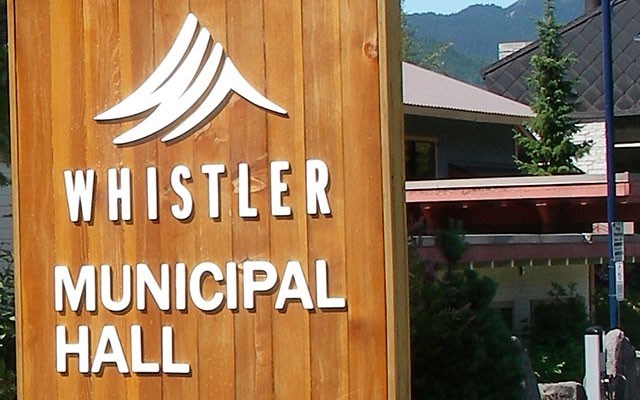Results from the Resort Municipality of Whistler's (RMOW) annual report card are in, and by most indications council and staff have passed with flying colours, although there remains areas for improvement.
The RMOW uses 22 key performance indicators in its Corporate Plan divided into several categories, and, by and large, saw positive results. Only six of the indicators were flagged for negative or unsatisfactory results, generally reflecting longstanding concerns in the community.
For the most part, results trended in the right direction in the Community Life category, save for three areas: resident affordability, resident satisfaction, and learning opportunities.
Affordability, housing remain concerns
Mayor Nancy Wilhelm-Morden spoke about the challenges in addressing affordability, noted as a key priority in the Corporate Plan, in a community that continues to see record visitation numbers.
"Unfortunately it's kind of a good-news-bad-news story," she said. "The good news is the economy has recovered to a large extent and the number of visitors are up in summer and winter alike, but of course that places demand on resources and has the unfortunate side effect of increasing the cost of living for many of the residents here. It is something we've identified and are looking at implementing some tools whenever we can."
The median personal income for residents in 2014 was between $45,000 and $50,000, according to data from the annual Community Life Survey, while the median household family income ranged from $90,000 to $95,000, largely consistent with recent years.
The mayor pointed to a 22-unit resident-restricted rental project planned for Cheakamus Crossing as one way to ease the economic burden. Over half of local residents spent 30-per-cent or more of their income on housing in 2014.
Housing remained a sticking point for the community last year, with 19-per-cent of survey respondents calling it the most important issue facing Whistler.
Resident satisfaction sees slight downturn
While overall satisfaction with municipal services and decision-making remained high in 2014, a slight downturn from the previous year has officials on notice.
"The fact that it moved the wrong way is a concern, but it's still a relatively high level of satisfaction," said Wilhelm-Morden.
Fifty-five per cent of permanent residents and 49-per-cent of second homeowners said they were satisfied with opportunities to provide input into local decision making, both slightly lower than in 2013.
Meanwhile, more than two-thirds of residents and four-fifths of second homeowners said they trust local officials have the best interests of the community in mind, while a vast majority of both groups feel municipal services provided by the RMOW to be of good value for their money.
Resort still lagging on environmental goals
The community continues to make headway on its environmental goals, but still needs to take big steps to meet the targets first set out in the community's long-term sustainability plan, Whistler 2020.
"While year-over-year results for most core environmental indicators are either stable or improving — the actual results most cases are behind the community's targeted performance level — thereby demonstrating the need for continued diligence in these areas," read the report.
Of the five environmental indicators, Whistler achieved unsatisfactory results in four: greenhouse gas emissions, total water use, community energy use and landfilled waste.
Community wants more educational opportunities
It's been a year and a half since council quashed plans for one of the biggest developmental projects in the resort's history, the Whistler International Campus. And while public opinion was divided on the proposal for a massive international university, it appears that residents mostly agree on one point: the need for more educational opportunities in Whistler.
According to the Community Life survey, only a third of residents are satisfied with the number of formal learning opportunities in the resort, on par with last year and up from the low of 27 per cent in 2007.
Council has followed the recommendation of the municipal Education and Learning Task Force to start with smaller educational opportunities, like the Vancouver Symphony Orchestra Institute and a satellite program of the Emily Carr University of Art + Design set to launch this summer.
"We're confident both of those projects will expand in their breadth over time," said Wilhelm-Morden, who said there will be additional learning opportunities provided through the Audain Art Museum opening this fall.




